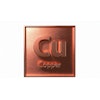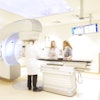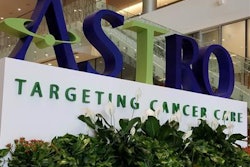
A shorter-course, higher-dose protocol for breast cancer radiation therapy is safe for patients younger than 50, according to research presented at the American Society for Radiation Oncology (ASTRO) annual meeting in San Diego.
Under the conventional radiation therapy protocol for breast cancer, patients receive radiation every day for six or seven weeks. The shorter technique, called hypofractionated whole-breast radiotherapy, imparts higher radiation doses over three to four weeks.
The findings are good news for younger women, who have not tended to be included in previous studies that have found a shorter protocol to be just as effective as the longer one, according to a team led by Dr. Naamit Gerber of the Perlmutter Cancer Center at NYU Langone Health.
Gerber's group analyzed the long-term response to the shorter therapy course in 348 women younger than 50 who were treated between 2003 and 2015. The researchers also tracked clinician- and patient-reported cosmetic outcomes.
They found that the shorter course was safe and effective in younger patients, with 94.5% of them free of disease recurrence five years after treatment, and only 3.3% of patients experiencing severe late side effects. The study showed good to excellent long-term cosmetic outcome ratings in 92% of patients, with a median follow-up of about three years after the completion of radiation treatment.
"Our new study provides rigorous scientific evidence that hypofractionated radiation therapy is safe and effective in women under 50," Gerber said in a statement released by NYU Langone Health. "We estimate that the potential exists for tens of thousands of patients to receive this less burdensome form of radiation each year."



















